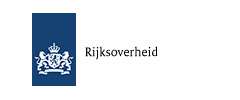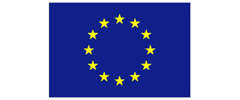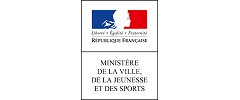HEAL launches mercury report at European Parliament
WECF members hair tested on mercury
15.01.2007 |Sascha Gabizon
Brussels 10 January 2007 – The results of a small-scale study in 21 countries published today show that 95% of women of child-bearing age have detectable levels of mercury in their bodies, which was traced in their hair. This is worrying because several scientific reports have shown conclusively that low-level exposure to mercury in the womb could cause brain damage in children. (1)
In a report to be launched today in Brussels, Dutch paediatrician Gavin ten Tusscher says: “Mercury has long been recognised as a major source of toxicity in children causing reduced cognitive functioning, including reduced I.Q. However, we are now seeing that even 'low' exposure levels can cause damage to the developing brain of the foetus and infant. These are mercury levels that are not known to cause acute poisoning or ill health in adults.” (2)
The “Stay Healthy, Stop Mercury” campaign, which is responsible for the survey and report, aims to raise awareness of a potential “child brain drain” taking place in Europe and around the world as a result of environmental mercury pollution. The two groups coordinating the campaign – the Health & Environment Alliance and Health Care Without Harm – are calling on the EU to show leadership in efforts to control environmental mercury pollution by securing a global ban on mercury. (3)
The report reveals that some of the women taking part in the survey were particularly worried because they were exposed to mercury at work. For example, Maria Toneva, who working in a chemical laboratory in Bulgaria said: “I wanted to take part because I handle mercury at work. I have been worried for a long time that this contact may not be good for my health.”
However, close examination of the sample results showed that women who regularly eat various kinds of fish tended to have higher levels in their hair than those who work with mercury. There were nevertheless limitations to the study due to the size of the survey and self-identification of the volunteers. Further research is needed to establish this relationship, and especially to investigate the higher mercury levels among Spanish women involved in the survey.
Karolina Ruzickova, Health Care Without Harm Europe will tell the meeting in Brussels that she believes the European institutions should now work swiftly on the elimination of mercury, especially in medical devices. “We would like to see the European institutions adopt a ban on mercury in measuring devices including those used in healthcare such as blood pressure devices, granting exceptions only if there is evidence that no safe and accurate alternatives are available for clinical use,” she says.
Génon Jensen, Health & Environment Network, will emphasise the need to inform women on how to protect themselves and their children in addition to the global ban. “Even if we stopped all mercury production and spills and emissions today, our global food supply would still be contaminated for years to come. Women need to have information now,” she says.
The campaign does not want pregnant women and other people to stop eating fish and seafood because they are both important sources of nutrients. “We are simply saying that it's better to eat smaller fish that are low in the food chain and therefore less contaminated,” Ms Jensen concludes.
Both organisers hope that the campaign transmits to leaders and industry worldwide, the silent, but increasing health damage of mercury to our children, and the urgency of acting today.
Notes
1. The findings are published in a report entitled “Halting the child brain drain: Why we need to tackle global mercury contamination”. The report also describes the effects such exposure can have on her unborn child if she is pregnant and on children, and what should be done to reduce exposure to mercury. It will be available online at www.env-health.org from 12.30 on Wednesday, 10 January 2007.
2. Gavin ten Tusscher, M.D., Ph.D., paediatrician, Department of Paediatrics and Neonatology, Westfries Gasthuis, Hoorn, the Netherlands.
3. “Stay Healthy, Stop Mercury” campaign brings together Health and Environment Alliance (HEAL) and Health Care Without Harm Europe (HCWH) to mobilise the health community in Europe for a global ban on mercury. The activities are focused on raising awareness of the risks to health, especially for babies and pregnant women, and on working with women and health care professionals on how they can protect themselves and the environment from mercury exposure.
| Origin country |
No. of participants |
Mean value |
| Armenia |
11 |
0.13 |
| Poland |
24 |
0.25 |
| Argentina |
8 |
0.16 |
| Macedonia |
15 |
0.16 |
| Bulgaria |
6 |
0.17 |
| The Netherlands |
8 |
0.22 |
| Slovakia |
9 |
0.26 |
| Germany |
17 |
0.29 |
| Sweden |
5 |
0.3 |
| Belgium |
36 |
0.65 |
| Czech Rep. |
10 |
0.33 |
| Ireland |
18 |
0.35 |
| India |
10 |
0.37 |
| Belarus |
11 |
0.43 |
| South Africa |
3 |
0.53 |
| UK |
12 |
0.54 |
| Cyprus |
9 |
0.55 |
| France |
8 |
0.57 |
| Croatia |
10 |
0.66 |
| Philippines |
9 |
0.92 |
| Spain |
9 |
2.18 |
The Health & Environment Alliance (HEAL) is an international non-governmental organisation that aims to improve health through public policy that promotes a cleaner and safer environment. Our work draws on the findings of the environmental health science revolution, which is revealing the impact of environmental degradation on health in an ever-widening range of diseases and conditions. We represent a diverse network of more than 50 citizens’, patients’, women’s, health professionals’ and environmental organisations across Europe with a strong track record in bringing environmental health science and policy to an increasing number of platforms. Our vision is that of a healthy planet for healthy people.
Health Care Without Harm is an international coalition of more than 450 groups in 55 countries. Because the health of humans is intimately linked with the health of the environment, and healthcare is founded on the Hippocratic principle to ‘first, do no harm’, we believe healthcare should avoid polluting practices wherever possible. We are working together to transform the healthcare industry so that, without compromising patient safety or care, it is ecologically sustainable and no longer a source of harm to people and the environment. Our members include hospitals and healthcare systems, medical and nursing professionals, community groups, health-affected constituencies, labour unions, and environment and health organisations.


































